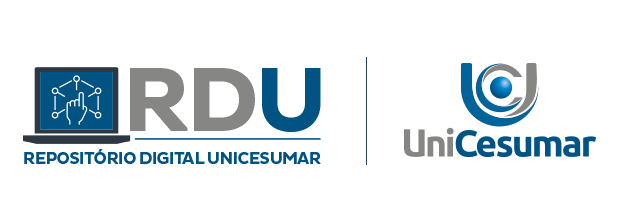Use este identificador para citar ou linkar para este item:
http://rdu.unicesumar.edu.br/handle/123456789/10166| Tipo: | Artigo |
| Título: | Pacientes com câncer: o impacto da sobrecarga do cuidador informal na qualidade do cuidado |
| Autor(es): | Alessi, João Victor Cunha, Samuel Correa |
| Primeiro Orientador: | Santos., Aliny de Lima |
| Resumo: | Objetivo: Compreender o cotidiano de cuidado empreendido por cuidadores informais de pessoas com câncer assistidas em instituição filantrópica, e a sobrecarga autorreferida. Método: Trata-se de um estudo qualitativo do tipo descritivo que foi realizado junto a 12 cuidadores familiares de pacientes com câncer que são assistidos em instituição filantrópica situada em município da região noroeste do Paraná. A coleta ocorreu entre maio e junho de 2022 e se deu mediante entrevista semiestruturada na referida instituição, durante estadia dos familiares. Para tanto foi usado instrumento que continha levantamento de perfil socioeconômico, histórico clínico do familiar com câncer e questões norteadoras. Todos os dados obtidos foram gravados, transcritos em sua totalidade e posteriormente analisados segundo abordagem temática, originando três grupos unidades de sentido. Resultados: As unidades temáticas permitiram verificar que houveram mudanças significativas na vida do cuidador familiar, mudanças essas, permeadas por emoções, experiências conflituosas e estratégias de enfrentamento adotadas por cada cuidador. Foi possível identificar impactos na saúde e desgastes nas relações interpessoais, porém sem alterar a maneira de cuidar do familiar doente. Conclusão: Ser o cuidador principal de um familiar com câncer pode alterar o cotidiano, a saúde e a estrutura familiar do cuidador. Todavia, percebe-se que apesar desses percalços, se mantêm a perseverança e a empatia permeando o processo de cuidado. |
| Abstract: | Objective: Understand the care routine undertaken by informal caregivers of people with cancer assisted in a philanthropic institution, and the self-reported overload. Method: This is a qualitative descriptive study that was carried out with 12 family caregivers of cancer patients who are assisted in a philanthropic institution located in a municipality in the northwest region of Paraná. The collection took place between May and June 2022 and took place through a semi- structured interview at the referred institution, during the family's stay. For this purpose, an instrument was used that contained a survey of the socioeconomic profile, clinical history of the family member with cancer and guiding questions. All data obtained were recorded, transcribed in their entirety and later analyzed according to a thematic approach, originating three meaning study units. Results: The thematic units made it possible to verify that there were significant changes in the life of the family caregiver, changes permeated by emotions, conflicting experiences and coping strategies adopted by each caregiver. It was possible to identify impacts on health and strain on interpersonal relationships, but without changing the way of caring for the sick family member. Conclusion: Being the main caregiver of a family member with cancer can change the caregiver's daily life, health and family structure. However, it’s clear that despite the difficulties, perseverance and empathy are maintained permeating the care process. |
| Palavras-chave: | cuidador familiar câncer desgaste do cuidador empatia relações interpessoais saúde |
| CNPq: | CNPQ::CIENCIAS DA SAUDE::MEDICINA |
| Idioma: | por |
| País: | Brasil |
| Editor: | UNIVERSIDADE CESUMAR |
| Sigla da Instituição: | UNICESUMAR |
| Tipo de Acesso: | Acesso Aberto |
| URI: | http://rdu.unicesumar.edu.br/handle/123456789/10166 |
| Data do documento: | 26-Jun-2024 |
| Aparece nas coleções: | MEDICINA |
Arquivos associados a este item:
| Arquivo | Descrição | Tamanho | Formato | |
|---|---|---|---|---|
| Cunha, Samuel Corrêa.pdf | Artigo apresentado ao curso de graduação em medicina da Universidade Cesumar – UNICESUMAR. | 692.33 kB | Adobe PDF |  Visualizar/Abrir |
Os itens no repositório estão protegidos por copyright, com todos os direitos reservados, salvo quando é indicado o contrário.
